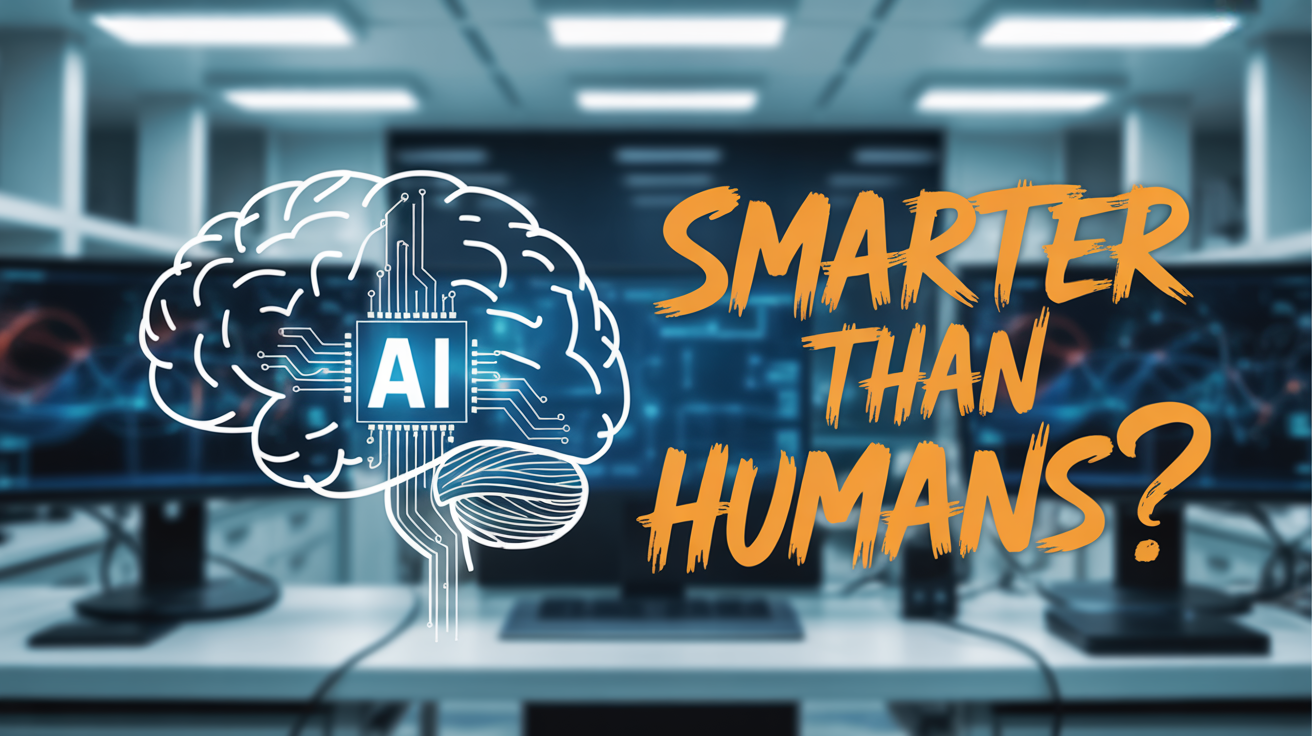

Quantum computing applications are revolutionizing industries across the United States, from quantum healthcare breakthroughs to quantum finance innovations that are reshaping Wall Street.
The quantum computing industry growth has accelerated dramatically since Google's 2019 quantum supremacy demonstration. Today, quantum algorithms are powering real-world solutions in quantum drug discovery, quantum cryptography, and quantum optimization across Fortune 500 companies. The quantum technology trends indicate we're entering an era where quantum machine learning and quantum artificial intelligence will define competitive advantage.
This comprehensive analysis explores three critical domains where quantum computing companies are delivering measurable results: quantum chemistry applications in pharmaceutical development, quantum finance solutions transforming investment strategies, and quantum cybersecurity protocols protecting digital infrastructure. These quantum computing breakthroughs represent the foundation of America's technological leadership in the quantum era.
Drug Discovery
Quantum molecular simulation enabling precise protein folding prediction and accelerated pharmaceutical research
Financial Modeling
Quantum algorithms for portfolio optimization, risk assessment, and Monte Carlo simulations with exponential speedup
Cryptography
Post-quantum cryptographic protocols securing data against future quantum computer attacks
Quantum Computing Fundamentals: The Foundation of Next-Generation Technology
Quantum computing represents a fundamental paradigm shift from classical binary processing to quantum mechanical principles. Unlike classical computers that process information in discrete bits (0s and 1s), quantum computers leverage quantum algorithms that exploit superposition, entanglement, and quantum interference to solve exponentially complex problems.
The core principles driving quantum advantage include superposition (qubits existing in multiple states simultaneously), entanglement (quantum correlation across any distance), and quantum interference (amplifying correct solutions while canceling incorrect ones). These quantum computing innovations enable solutions to problems that would take classical supercomputers millennia to solve.
Quantum Supremacy: The Inflection Point
Google's 2019 quantum supremacy demonstration marked a pivotal moment in quantum computing history. Their 53-qubit Sycamore processor completed a specific calculation in 200 seconds that would require the world's fastest supercomputer 10,000 years. This quantum computing breakthrough validated the practical potential of quantum algorithms for real-world applications.
Leading quantum computing companies including IBM and IonQ have since accelerated quantum software development and quantum cloud services deployment, transforming theoretical quantum computing into practical business solutions.
Quantum computing applications excel at problems involving exponential complexity, making them ideal for quantum simulation of molecular interactions, quantum optimization of complex portfolios, and quantum cryptography protocols. These quantum computing challenges represent the core applications driving quantum technology trends and quantum industry growth across multiple sectors.
Quantum Healthcare: Transforming Drug Discovery and Pharmaceutical Innovation
The pharmaceutical industry faces significant challenges: traditional drug discovery requires 10-15 years and over $2 billion per drug, with 90% failure rates in clinical trials. Quantum healthcare applications are revolutionizing this process through quantum drug discovery and quantum chemistry simulations that accelerate molecular analysis and protein folding predictions.
Quantum Chemistry and Molecular Simulation Breakthroughs
Protein folding represents one of the most complex challenges in quantum chemistry. Traditional computational methods struggle with the exponential complexity of molecular interactions. Quantum simulation algorithms can model these interactions with unprecedented accuracy, enabling precise prediction of drug-target binding and molecular behavior at the quantum level.
Clinical Validation: Quantum Drug Discovery in Action
A 2024 study published in Nature Scientific Reports demonstrated quantum computing's practical impact on cancer therapy development. Researchers utilized quantum algorithms to simulate β-lapachone prodrug activation, achieving chemical accuracy within 2% of experimental results. This quantum healthcare breakthrough enables precise prediction of drug activation mechanisms and personalized treatment optimization.
This quantum drug discovery success validates the potential for quantum chemistry applications in accelerating cancer therapy development while reducing side effects through enhanced molecular targeting precision.
Industry Adoption: Quantum Computing Companies Leading Healthcare Innovation
Major pharmaceutical companies are investing heavily in quantum computing partnerships and quantum software development. AstraZeneca's collaboration with IonQ focuses on accelerating drug development timelines, while Roche's partnership with Cambridge Quantum Computing explores quantum machine learning applications for molecular design. These quantum computing companies are transitioning from proof-of-concept to production deployment.
The quantum healthcare sector is experiencing rapid growth, with quantum drug discovery reducing development timelines from years to months while improving success rates. As quantum hardware scales and quantum programming tools mature, we can expect exponential improvements in personalized medicine and targeted therapy development.
Quantum Finance: Revolutionizing Investment Strategies and Risk Management
The financial services industry is experiencing a quantum transformation, with leading institutions deploying quantum algorithms for portfolio optimization, risk assessment, and trading strategies. Quantum finance applications are delivering measurable improvements: 15-25% enhancement in prediction accuracy and computational speedups of 100x for complex financial modeling scenarios.
Quantum Optimization in Risk Management and Portfolio Analysis
Traditional financial risk modeling relies on Monte Carlo simulations that require hours or days for complex portfolios. Quantum optimization algorithms provide exponential speedup for Value-at-Risk (VaR) calculations, stress testing scenarios, and multi-asset portfolio optimization. This quantum computing breakthrough enables real-time risk assessment for institutional investors and hedge funds.
Case Study: Goldman Sachs Quantum Finance Implementation
Goldman Sachs has implemented quantum algorithms for portfolio optimization, achieving significant improvements in risk-adjusted returns. Their quantum-enhanced approach processes 1000+ asset portfolios in real-time, compared to classical methods requiring hours of computation. This quantum finance breakthrough demonstrates practical quantum computing applications in institutional investment management.
Similar quantum computing implementations are active at JPMorgan (quantum Monte Carlo for derivatives) and Barclays (quantum risk management systems). These quantum computing companies represent the vanguard of quantum finance adoption.
Quantum Supply Chain and Logistics Optimization
Portfolio optimization represents a classic example of exponential complexity in quantum finance. As asset classes increase, the number of possible combinations grows exponentially. Quantum optimization algorithms can explore all combinations simultaneously, finding optimal solutions in minutes rather than hours. This quantum computing application extends beyond finance to quantum logistics and quantum supply chain optimization.
Central banks and asset managers are deploying quantum computing solutions in production environments. The Bank of England utilizes quantum stress testing, while BlackRock explores quantum-powered ESG optimization. These quantum investment opportunities demonstrate the practical value of quantum computing platforms in institutional finance.
Quantum Cybersecurity: The Critical Challenge of Post-Quantum Cryptography
The quantum computing revolution presents a dual-edged sword for cybersecurity. While quantum algorithms enable breakthrough applications, they also threaten current encryption standards. Most existing cryptographic protocols are vulnerable to quantum attacks, including RSA encryption, elliptic curve cryptography, and digital signature schemes that protect financial transactions and sensitive data.
The Y2Q Challenge: Quantum Computing Threats to Digital Security
Security experts refer to "Y2Q" (Years to Quantum) as the timeline before quantum computers can break current encryption. While estimates suggest 10-15 years before large-scale quantum computers become available, the threat is immediate. Attackers are already harvesting encrypted data through "harvest now, decrypt later" strategies, planning to decrypt sensitive information once quantum computers achieve sufficient scale.
Critical Infrastructure at Risk
Current encryption protects critical infrastructure including financial systems, government communications, healthcare records, and IoT devices. Quantum computing threats extend across multiple sectors: quantum cryptography vulnerabilities affect blockchain systems, quantum sensors could compromise smart infrastructure, and quantum artificial intelligence poses risks to autonomous systems.
- • Financial services and banking infrastructure
- • Government and military communications
- • Healthcare and medical device security
- • IoT devices and smart city infrastructure
Post-Quantum Cryptography: The Quantum-Safe Solution
The National Institute of Standards and Technology (NIST) has standardized post-quantum cryptographic algorithms that resist quantum attacks, including lattice-based encryption (ML-KEM) and hash-based signatures (SLH-DSA). These quantum cybersecurity protocols provide mathematical security against both classical and quantum computing threats, ensuring long-term data protection.
Major technology companies are implementing hybrid classical-quantum security protocols. Google and Microsoft are deploying quantum-safe encryption across their cloud services. Governments worldwide are mandating post-quantum migration timelines, creating quantum computing jobs and quantum computing careers in cybersecurity.
Quantum Computing Future: Market Projections and Strategic Implications
The quantum computing revolution is accelerating at an unprecedented pace, with quantum technology trends indicating widespread adoption within the next decade. Quantum computing innovations are transitioning from research laboratories to production environments, creating quantum computing jobs and quantum investment opportunities across multiple industries. Organizations that fail to prepare for quantum computing challenges risk competitive disadvantage in the quantum era.
Quantum Computing Timeline: From Research to Production
Industry analysts project that practical quantum advantage will emerge between 2025-2027 for specific applications. By 2030, quantum-enhanced solutions will be deployed across healthcare, finance, and cybersecurity sectors. Quantum computing companies investing in quantum hardware, quantum software development, and quantum cloud services today will dominate their respective markets tomorrow.
Quantum Computing Market Growth and Investment Opportunities
The global quantum computing market is projected to reach $24 billion by 2030, with a compound annual growth rate of 32%. This quantum industry growth represents significant quantum investment opportunities across quantum computing startups, quantum hardware development, and quantum as a service platforms. Early adopters in quantum computing companies will capture disproportionate market share.
Leading quantum computing companies including IBM, IonQ, and D-Wave are partnering with Fortune 500 companies to deploy quantum computing platforms in production environments, creating quantum computing jobs and quantum computing careers.
Strategic Preparation: Quantum Computing Education and Workforce Development
Organizations must prioritize quantum computing education and workforce development to remain competitive. This includes quantum computing courses, quantum computing certifications, and quantum computing training programs for existing employees. Quantum computing careers require specialized knowledge in quantum programming, quantum operating systems, and quantum developer tools. The window for early adoption is closing rapidly.
The quantum computing future extends beyond computational speed improvements to solving previously intractable problems in quantum research labs worldwide. Organizations that invest in quantum computing ethics, quantum computing challenges, and quantum computing innovations today will define the technological landscape for the next century.
Quantum Computing Revolution: From Research to Production
The quantum computing revolution has transitioned from theoretical research to practical implementation across multiple industries. Quantum computing applications are delivering measurable business value in quantum healthcare, quantum finance, and quantum cybersecurity sectors. Leading organizations are deploying quantum algorithms, quantum machine learning, and quantum artificial intelligence solutions in production environments.
The evidence demonstrates that quantum computing is delivering real value today. AstraZeneca leverages quantum drug discovery for pharmaceutical development, Goldman Sachs utilizes quantum finance algorithms for portfolio optimization, and Google implements quantum cybersecurity protocols for data protection. The question isn't whether quantum computing will transform industries—it's whether organizations will be prepared for the quantum computing future.
Key Strategic Insights
- • Quantum Healthcare: Quantum chemistry and quantum drug discovery are accelerating pharmaceutical development and personalized medicine
- • Quantum Finance: Quantum optimization algorithms are transforming portfolio management and risk assessment in financial services
- • Quantum Cybersecurity: Post-quantum cryptography protocols are being deployed to protect critical infrastructure and data
- • Market Opportunity: The quantum computing market will reach $24 billion by 2030, creating quantum computing jobs and quantum investment opportunities
Organizations that prioritize quantum computing education, quantum computing training, and quantum computing certifications will gain significant competitive advantage. The quantum computing industry growth requires investment in quantum computing courses, quantum programming skills, and quantum developer tools. Early adopters in quantum computing companies will capture disproportionate market share in the quantum computing future.
The quantum computing revolution extends beyond computational improvements to solving previously intractable problems in quantum research labs worldwide. Organizations that invest in quantum computing ethics, quantum computing challenges, and quantum computing innovations today will define the technological landscape for the next century. Quantum computing startups and quantum computing platforms represent the foundation of America's technological leadership.
Stay Ahead of Quantum Computing Trends
Subscribe to DecodesFuture for comprehensive insights on quantum computing applications, quantum technology trends, and quantum computing breakthroughs. Access expert analysis on quantum computing companies, quantum investment opportunities, and quantum computing careers.
Join thousands of professionals preparing for the quantum computing future through quantum computing courses and quantum computing certifications.
Share this article:
Related Articles
Continue exploring the future

Agentic AI in 2025: How Autonomous Intelligence Will Reshape Work
Discover how Agentic AI is redefining autonomous intelligence, enabling systems to act with purpose, adaptability, and decision-making power.

Edge Computing: Bringing Intelligence to the Physical World
As data processing moves closer to the source, edge computing is enabling real-time decisions in autonomous vehicles, smart cities, and IoT.

Quantum AI: How Quantum Computing Will Supercharge Autonomous Intelligence
Explore how quantum computing technologies are revolutionizing autonomous intelligence systems with advanced quantum algorithms, neural networks, and real-world applications in 2025 and beyond.
Loading comments...